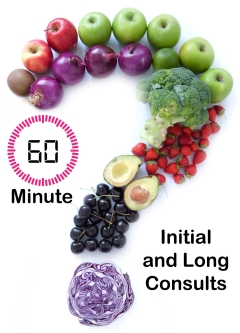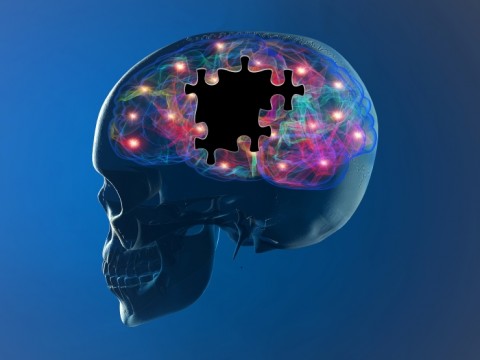DrCarney.com Blog
Eating Dietary Flavonoids Reduces Parkinson's Risk
You have possibly heard this before: Eat more flavonoids. But why are dietary flavonoids beneficial? Dietary flavonoids, found mainly in legumes, vegetables and fruits, such as colorful leafy greens, blueberries, peppers, onions, citrus fruits, squashes, onions, apples, bananas, kidney beans, fava beans, and broccoli, are known for their antioxidant and anti-inflammatory health benefits. The findings of research conducted in 2012 by a team of scientists from Harvard Medical School revealed that consistent consumption of diets high in flavonoid-rich foods may be beneficial in the prevention of Parkinson's, a degenerative disease.
Parkinson's disease is a chronic and progressive movement disorder affecting more than 10 million people worldwide and about one million people in the United States. This neurodegenerative disease primarily affects neurons located in a region of the brain called the substantia nigra pars compacta. These neurons manufacture the neurotransmitter dopamine that sends signals to the parts of the brain that controls movement and cordination. Degeneration of the dopaminergic neurons in the substantia nigra pars compacta results in loss of muscle control. Some common symptoms associated with Parkinson's disease include tremor of the hands, arms, legs, jaw, and face, bradykinesia (slow movements), rigid muscles, impaired posture and balance, loss of automatic movements, speech changes, and writing changes.
A variety of factors are responsible for the development and progression of Parkinson disease. Current concepts on the pathogenesis of Parkinson's disease are centered on the free radical-induced oxidative damage to the dopaminergic neurons located in the substantia nigra par compacta region of the brain. Free radicals are molecules that cause damage to protein, DNA, lipids, cell membranes, and other parts of the cell. The mitochondria found in dopaminergic neurons and dopamine metabolism produce free radicals. If these free radicals are not neutralized and removed from the body, they will interact with other molecules and cells in the brain and cause oxidative damage to the dopamine-producing neurons in the substantia nigra, resulting in the deaths of these nerve cells, the formation of Lewy bodies (abnormal aggregation of the neuronal protein alpha-synuclein), and the development of Parkinson's disease.
How Dietary Flavonoids Protect Against Parkinson's Disease?
The best described property of dietary flavonoids is their capacity to act as antioxidants. Dietary flavonoids help to neutralize and remove free radicals from the body. The antioxidant activity of dietary flavonoids help suppress free-radical induced oxidative damage to the dopamine-producing nerve cells in the substantia nigra pars compacta and protect these neurons from the harmful effects of free radicals.
In addition, dietary flavonoids are rich sources of polyphenols. In fact, flavonoids account for more than two-thirds of our total dietary intake of polyphenols. Habitual consumption of foods high in Polyphenols has been shown to be beneficial in the prevention of Parkinson's disease.
Eat More Flavonoid-Rich Foods
Prevention is always better than cure when it comes to the management of disease. There is no known cure for Parkinson's disease. Regular consumption of flavonoid-rich foods may help reduce your chances of developing this debilating, neurodegenerative, movement disorder. In order to minimize your risk of developing Parkinson's disease, allocate more space on your plate for flavonoid-rich plant foods. Consuming flavonoid-rich plant foods daily may help keep Parkinson's disease away, and enable you to live an enjoyable and fulfilling life. So, eat more flavonoids and keep Parkinson's disease at bay.
Additional Information:
(1) Habitual Intake of Dietary Flavonoids and Risk of Parkinson's Disease
(2) Parkinson's Disease, Dopamine, and Free Radicals
(3) The Potential Role of Dietary Polyphenols in Parkinson's Disease
(4) Parkinson's Disease Foundation: What is Parkinson's Disease
(5) Protective Mechanisms of Flavonoids in Parkinson's Disease
(6) Fatty Foods Dull our Dopamine Reward System
Scroll Down Page to Leave Comments

Want to Make Lifestyle Changes?
Not sure how to start? The good news is that Help is Only a Click Away! We invite you to join Dr. Carney's Helpful Sharing Community.
One Hour Phone Consult with Dr. Carney

Telephone Food Coaching Sessions with Linda Carney MD
Due to demand for nutritional advice, Dr. Carney's offers Starch-Smart® System "Dietary Care Extraordinaire" Food Coaching telephone sessions. The first sessions is always one hour. Subsequent sessions can be thirty minutes or one hour:
Click Here For 60 Minute Food Coaching Session
Please Note: Food Coaching sessions are not medical appointments and are not intended to replace your own physician. No tests will be ordered and no prescriptions will be provided.
When you subscribe to the blog, we will send you an e-mail when there are new updates on the site so you wouldn't miss them.




